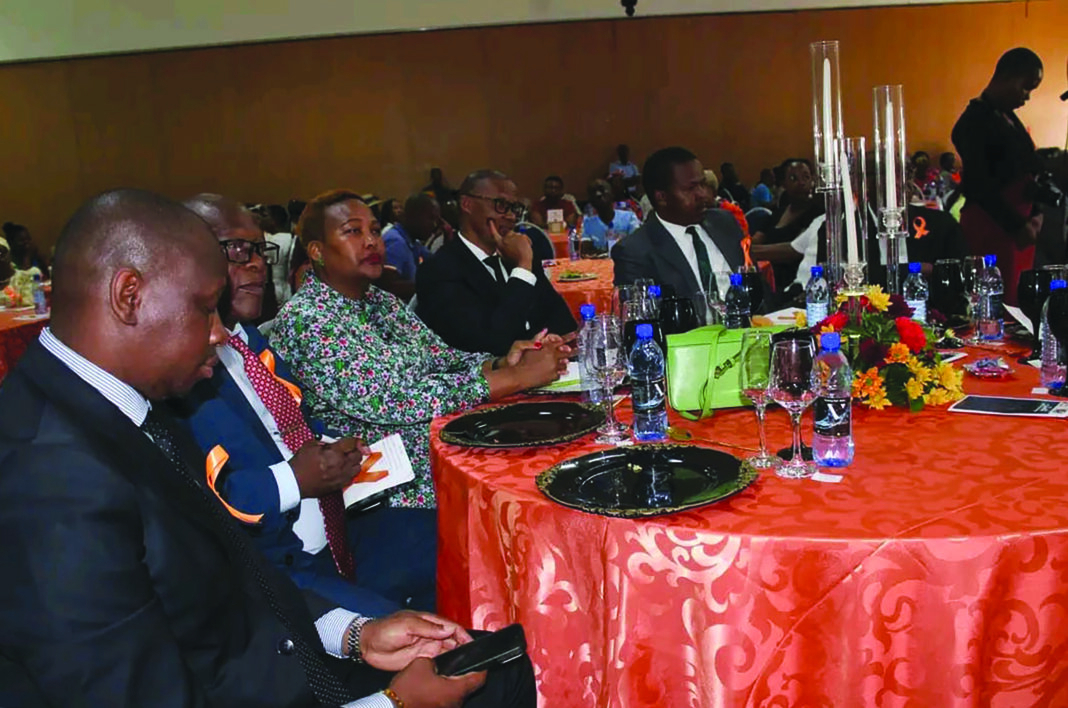… Girls as young as 12 among victims as sexual violence soars
Ntsoaki Motuang
Tebello Tšepe, Assistant Commissioner of Police responsible for the Criminal Investigation Department (CID), revealed this week that a total of 454 gender-based violence (GBV) cases involving adults were reported between January and September this year.
Of these cases, 266 were sexual offences, primarily affecting women.
“Most victims of sexual offences are women or females. We also recorded 127 cases of assault, including common assault and grievous bodily harm (GBH), in which women were assaulted by their husbands, spouses, or intimate partners. Additionally, 16 cases of innocent assault were reported. These figures reflect cases affecting adults,” Tšepe stated.
He noted that Maseru Rural recorded the highest number of reported sexual offences, followed by the Leribe district.
Turning to cases involving children, Tšepe disclosed that 364 cases were reported during the same period.
“Of these, 284 were sexual offences, mostly involving girls or females. However, we have seen a rise in the number of sexual offences reported involving boys. There were also 36 cases of GBH and 31 cases of violations under the Child Protection and Welfare Act,” he said.
The Leribe district recorded the highest number of child-related sexual offences, with 54 cases, followed by Quthing with 38 cases.
“In most child sexual offences, victims are between the ages of 12 and 17,” Tšepe added.
He shared these findings during the National Dissemination of the Lesotho Demographic and Health Survey (DHS) organised by the Ministry of Health earlier this week.
The inclusion of GBV issues in the DHS was met with gratitude by GBV advocates during the meeting.
Dr. Mosiuoa Ramakoele, Gender and Social Inclusion Expert, highlighted the significance of incorporating a GBV module into the health sector.
“If Lesotho aims to achieve universal health coverage and prioritise primary and public health, GBV, as a socio-cultural factor, must be addressed. Otherwise, no progress will be made,” he said.
Dr. Ramakoele emphasised that the inclusion of the module would provide comprehensive data to address GBV challenges effectively.
“The survey shows that 41 percent of women aged 15-49 have experienced physical violence by any perpetrator since the age of 15, and 20 percent have experienced such violence in the last 12 months,” he noted.
Among married women or those with intimate partners, 51 percent reported experiencing violence from their current partners, while 30 percent faced violence from former partners. In contrast, women who have never been married or had intimate partners experienced violence primarily from schoolmates or classmates.
‘Matau Futho Letsatsi, Director of Gender at the Ministry of Gender and Social Development, presented findings from a Commonwealth study on the economic costs of violence against women and girls in Lesotho.
“Violence against women is a significant factor in divorce cases in Lesotho, costing the country approximately M15.9 million in 2017,” Letsatsi stated.
United Nations (UN) Resident Coordinator Amanda Khozi Mukwashi shared grim statistics from UN Women, revealing that globally, a woman is killed by a partner or family member every 10 minutes.
Mukwashi highlighted how food insecurity exacerbates GBV in Lesotho.
“An estimated 86 percent of women in Lesotho are expected to experience GBV in their lifetime, placing the country among the top six or seven globally,” she said.
She warned that the ongoing food insecurity crisis, with a third of the population affected, is worsening the situation.
“During visits to the districts, I have observed mothers and daughters resorting to providing sexual services in exchange for food. As the UN, we stand in solidarity with these women and girls and remain committed to supporting efforts to end this scourge in line with the UN Secretary General’s Unite by 2030 to End Violence Against Women campaign,” Mukwashi affirmed.
Summary
- “The survey shows that 41 percent of women aged 15-49 have experienced physical violence by any perpetrator since the age of 15, and 20 percent have experienced such violence in the last 12 months,” he noted.
- ‘Matau Futho Letsatsi, Director of Gender at the Ministry of Gender and Social Development, presented findings from a Commonwealth study on the economic costs of violence against women and girls in Lesotho.
- As the UN, we stand in solidarity with these women and girls and remain committed to supporting efforts to end this scourge in line with the UN Secretary General’s Unite by 2030 to End Violence Against Women campaign,” Mukwashi affirmed.

Your Trusted Source for News and Insights in Lesotho!
At Newsday Media, we are passionate about delivering accurate, timely, and engaging news and multimedia content to our diverse audience. Founded with the vision of revolutionizing the media landscape in Lesotho, we have grown into a leading hybrid media company that blends traditional journalism with innovative digital platforms.










